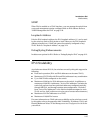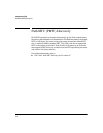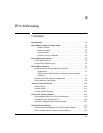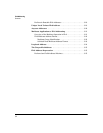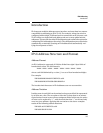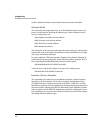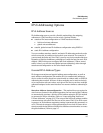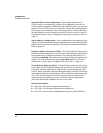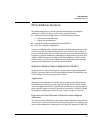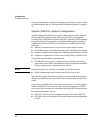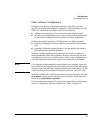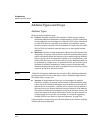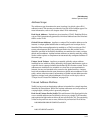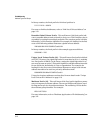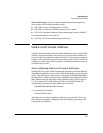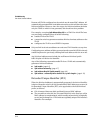
3-7
IPv6 Addressing
IPv6 Address Sources
IPv6 Address Sources
IPv6 addressing sources provide a flexible methodology for assigning
addresses to VLAN interfaces on the switch. Options include:
■ stateless IPv6 autoconfiguration on VLAN interfaces includes:
• link-local unicast addresses
• global unicast addresses
■ stateful IPv6 address configuration using DHCPv6
■ static IPv6 address configuration
You can combine stateless, stateful, and static IP addressing methods on the
switch as needed, according to the needs in your network. For example, if
your network includes only one VLAN, you may need only stateless autocon-
figuration of link-local addresses, although you could also use the static IPv6
method. (DHCPv6 does not configure link-local addresses.) Where routed
traffic is used, you will also need global unicast addressing, either through
stateless autoconfiguration or the other listed methods.
Stateless Address Autoconfiguration (SLAAC)
On the switches covered by this guide, stateless address autoconfiguration
(SLAAC) generates link-local unicast and global unicast IPv6 addresses on a
VLAN interface. In all cases, the prefix is 64 bits.
Applications
Stateless autoconfiguration is suitable where a link-local or global unicast
IPv6 address (if a router is present) must be unique, but the actual address
used is not significant. Where a specific unicast address or a unicast address
from a specific range of choices is needed on an interface, DHCPv6 or static
IPv6 address configuration should be used. (Refer to pages 3-8 and 3-9.)
Preferred and Valid Lifetimes of Stateless Autoconfigured
Addresses
The preferred and valid lifetimes of an autoconfigured global unicast address
are set by the router advertisements (RA) used to generate the address, and
are the autoconfiguration counterpart to the lease time assigned by DHCPv6



